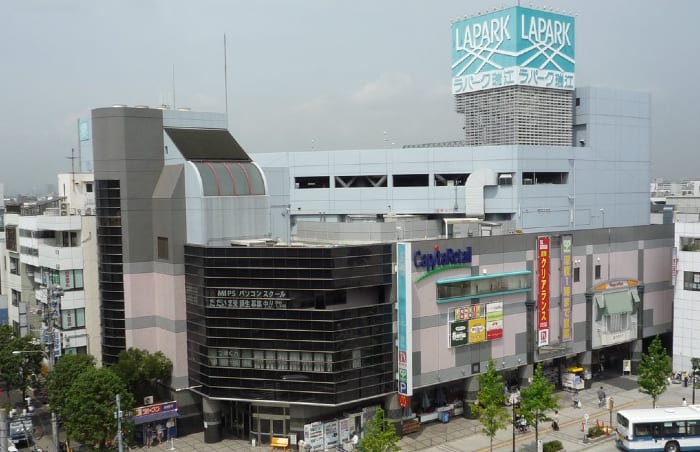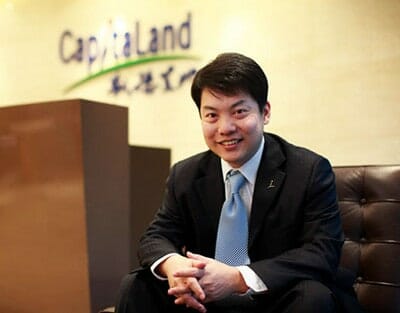
La Park Mizue was among three malls CapitaLand sold last month
CapitaLand’s shift to a strategy aligned with an increasingly digital economy continues, with the Singaporean developer on Tuesday announcing the divestment of three Japanese malls and a Korean office tower for a combined S$448.7 million ($335 million), and the acquisition of a majority interest in a Greater Tokyo logistics project.
As part of what it dubs a “portfolio reconstitution”, CapitaLand sold retail properties La Park Mizue and Vivit Minami-Funabashi in suburban Tokyo and Co-op Kobe Nishinomiya Higashi between the cities of Kobe and Osaka for a total of S$283.6 million ($211.8 million).
The sales took place across the month of November and involved separate buyers, according to a source familiar with the transactions.
In the same announcement, the company revealed that a private fund under its management had sold the 19,578 square metre (210,736 square foot) Icon Yeoksam office building in August for S$165.1 million, a total which the developer said was above valuation. A person familiar with the market identified the buyer as British investment manager M&G. Representatives of the Prudential affiliate declined to comment on the transaction when contacted by Mingtiandi.
The set of northern Asia asset disposals comes within weeks of Southeast Asia’s largest real estate firm having named a new chairman, as well as an updated corporate strategy emphasising investment in assets aligned with the digital economy.
Pursuing Growth Opportunities
“The divestment of these mature malls and office asset is part of CapitaLand’s capital recycling strategy to unlock value by reinvesting the capital into new growth opportunities such as the logistics sector in Japan,” Jason Leow, CapitaLand’s president for Singapore and international, said in the Tuesday press release.

Jason Leow says CapitaLand is focusing on new growth opportunities such as logistics
CapitaLand’s Seoul sale of the 15-storey Icon Yeoksam brought it a markup of S$40.8 million over the S$124.3 million that Ascendas Korea Office Qualified Private REIT No.5 had paid to acquire the property in Gangnam district in November 2017. At the deal consideration, the CapitaLand fund achieved a value of S$8,433 per square metre for the 2017-vintage tower.
CapitaLand had taken over the asset through its merger with Ascendas-Singbridge in June 2019 and will remain the asset manager of the property following the disposal.
By paring down exposure to Japan’s retail sector, while drawing on the group’s logistics experience in markets like Singapore, Australia and the UK to expand into Japan’s new economy sector, CapitaLand is responding to shifting market trends and positioning itself for future growth, Leow said.
Building Japanese Sheds
CapitaLand’s pursuit of a new economy advantage in Japan comes through a joint venture with Mitsui & Co Real Estate Ltd, which aims to develop and operate a logistics project close to central Tokyo.
The four-storey project, which marks the Singapore firm’s first foray into Japan’s logistics sector, will have a gross floor area of 24,000 square metres when completed in the fourth quarter of 2022. CapitaLand is the majority partner in the venture.
“The logistics sector in Japan presents significant opportunities for CapitaLand,” said Gerald Yong, chief executive of CapitaLand International. “The global pandemic has accelerated the growth of e-commerce and the logistics sector has been a prime beneficiary of this trend. Vacancy rates of the logistics sector in Greater Tokyo have reached a historical low of 0.4 percent.”
CapitaLand’s logistics tie-up comes on the heels of another Japanese warehouse venture by a Singaporean player. Fellow Temasek Holdings-controlled firm Mapletree Investments announced last week that it had acquired a 116,319 square metre site near the city of Fukuoka on Kyushu island for development into two blocks of four-storey warehouse facilities.
Capital Redeployment
As CapitaLand plans for the future under new leadership, the developer has said that it plans to redeploy capital from recent asset sales into investment in new economy assets — business parks, logistics and data centres — particularly in China, where it aims to increase its exposure to such assets to S$5 billion over the next few years.
With the asset sales in Japan and South Korea, the gross value of divestments by CapitaLand and its real estate investment trusts has reached S$3.02 billion this year, eclipsing its annual target of recycling S$3 billion in capital. As of 30 November, CapitaLand and its REITs had invested more than S$3.3 billion in new assets in 2020, the company said.
Leave a Reply